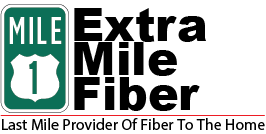Today, the FCC defines broadband as a connection with download speed of at least 4mbps and an upload speed of at least 1mbps. This definition was an upgrade from the previous definition of 768kbps prior to 2010. As of May 2014, the FCC has been inquiring and seeking comments on increasing the definition to between 10mbps and 25mbps.
It is not surprising that companies like AT&T and Verizon are protesting a change in the definition and suggest that 4mbps is fast enough. However, FCC Chairman Tom Wheeler responded:
“We have proposed increasing the throughput in order to get Universal Service funds from 4Mbps to 10Mbps for precisely the reason that you mentioned, that you can’t have a digital divide. When 60 percent of the Internet’s traffic at prime time is video, and it takes 4 or 5Mbps to deliver video, a 4Mbps connection isn’t exactly what’s necessary in the 21st century. And when you have half a dozen different devices, wireless and other connected devices in a home that are all going against that bandwidth, it’s not enough. What we are saying is we can’t make the mistake of spending the people’s money, which is what Universal Service is, to continue to subsidize something that’s subpar.”
The FCC currently supports carriers that provide broadband services in rural areas through their Universal Service Fund (see the line item charge on your broadband bill and your phone bill). This would make these funds unavailable to those carriers unless they invest in their infrastructure to bring up the broadband speeds.
A post in arstechnica points out:
Earlier this month, Wheeler pointed out in a speech that most Americans have a choice of only two ISPs at speeds of 4Mbps and 10Mbps. At 25Mbps, “there is simply no competitive choice for most Americans,” he said.
The idea of a small jump to 10mbps is too small. Some communities, like Kansas City and Chattanooga, already have a fiber broadband option with speeds of up to 1gpbs. The wisest investment for Dayton and other communities is to install fiber broadband with speeds of 1gbps, even to homes in rural areas.
Leigh Sandy is the founder of Extra Mile Fiber and has been building and operating networks connected to the Internet since 1995.
